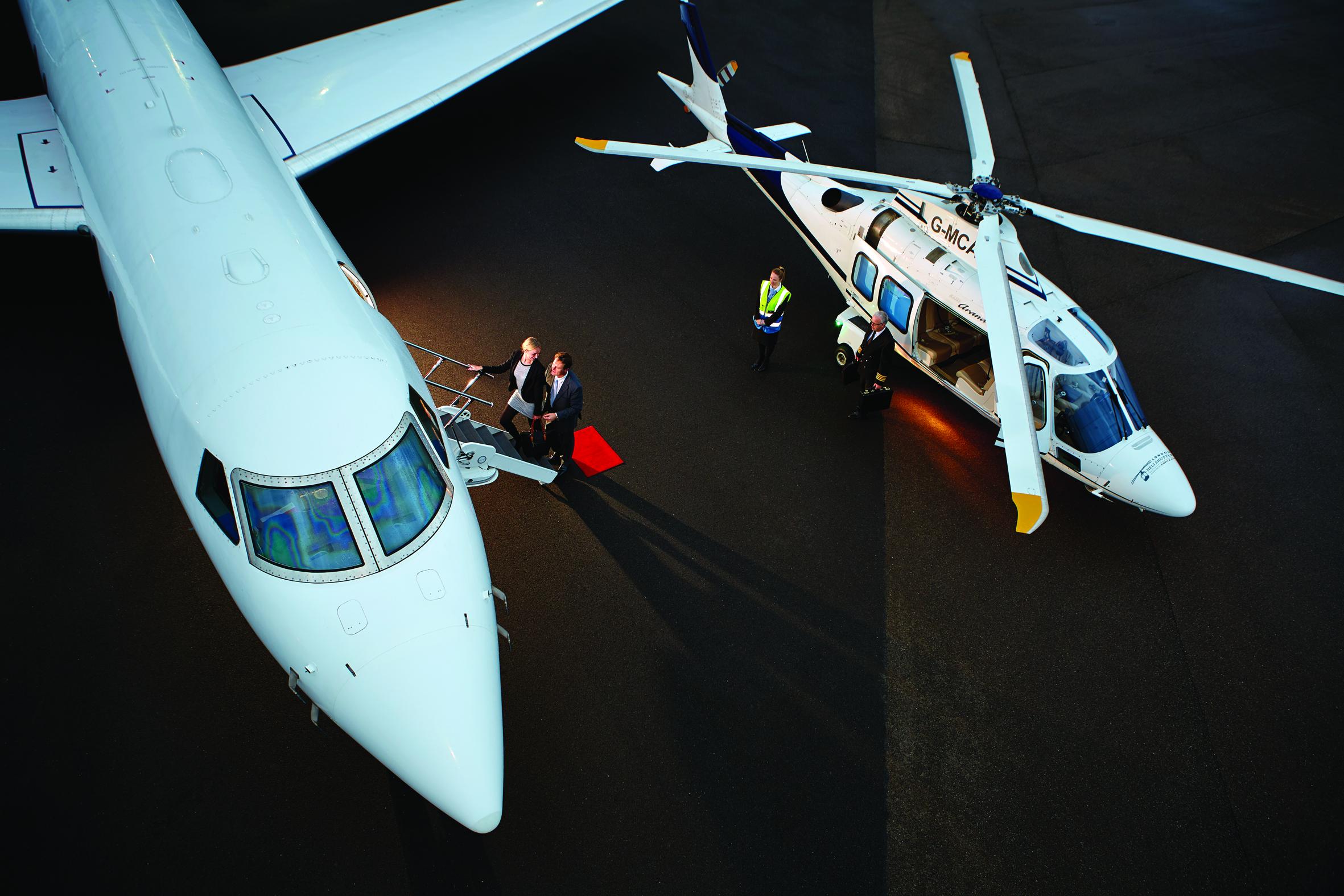
Since the start of the global COVID-19 lockdown, business aviation insiders have said they are confident the sector’s inherent characteristics mean it is perfectly placed to bounce back strongly as travelers return to the skies.
One British airport says it is already seeing numbers that prove the hypothesis, and has launched a campaign to promote these advantages to travelers who have not flown privately before.
London Biggin Hill Airport’s program, called Contactless Travel, is low cost and has required no new innovations or operational effort. It seeks to highlight how business aviation’s standard mode of operation already offers considerable reassurance and risk reduction for passengers concerned about catching the coronavirus. And, when allied to COVID-specific additional measures, this means the sector offers arguably the lowest-risk mode of travel available.
According to Robert Walters, the airport’s commercial director, Contactless Travel aims to combine details of recently heightened cleaning and sanitation measures with the space, privacy and security that business aviation offers as part of normal business. Walters highlights three elements—space, time and safety—where business aviation already scores highly over scheduled airlines, and which the Contactless Travel initiative is designed to promote to those who have not yet used private aircraft.
“We’ve packaged up what dedicated business aviation airports do into something that’s palatable to those who have not trodden this path before,” Walters says. “We’re reinforcing all the benefits we already know, in a way that can be understood by those who aren’t used to traveling by business aviation yet. It’s about educating people about business jets and how you travel by business aviation, and how you do it in the most safe fashion. We’re just trying to find unique and relevant ways to try to entice them to dip their toe in the water—or, if nothing else, to just pick up the phone and ask.”
The program launched early in July, and Walters believes it will help build on and reinforce trends already starting to become visible.
“In the first week of July we saw traffic levels return to pretty much 2019 levels,” he says. “We anticipate those levels will continue for a time, and potentially increase with the release of [UK] quarantine [restrictions on travelers arriving from certain countries] after 10th July. We’re seeing more people traveling within Europe: I don’t think we’re going to anywhere we haven’t been to before—there’s just an intensification of existing routes. And we’re seeing first-class passengers in our lounges flying on Citations and Hawkers for the first time on charters and day trips.”
Contactless Travel is a web page and a PDF, and with some active public relations messaging. It does not represent a significant investment on the part of Biggin Hill’s owners. Nevertheless, developing, designing and distributing the material requires some resources. And since the program mainly highlights sector-wide trends rather than focusing on elements only Biggin Hill can offer, it is possible the end result will be the airport generating trade for rivals. Walters believes this would still constitute a win for the business.
“A healthier industry will mean a healthier airport community for ourselves,” he says. “We have a huge range of charter operators based here at Biggin Hill. So even if we are not directly promoting more flights here but those charter operators pick up more business from other airports because of the initiative, we indirectly still benefit. We have a responsibility to make sure that we promote what is best about the uses of business aviation, and we know there are others out there doing the same thing.”
If this sounds as if the airport is entering territory more usually occupied by trade associations, it is no accident. During a recent successful campaign to extend its operating hours, Biggin Hill’s staff gained a great deal of experience in liaising with its local community and political decision makers, and became adept at highlighting the benefits business aviation brings to the area.
“Dedicated business aviation airports really create a very unique and vibrant ecosystem,” Walters says. “Here at Biggin Hill, with our 11 MROs and significant OEM presence, with our training college about to be built for aerospace engineers, we’re creating a hotbed of innovation and skills which is exactly on message with what the government wants to do. We’re grateful for the work of the BBGA [British Business and General Aviation Association], the Air Charter Association, the EBAA [European Business Aviation Association] and NBAA [National Business Aviation Association] and those further afield. We continue to support all those associations. But we also stand on our own two feet as a business that supports over 1,300 direct jobs on-site.”





